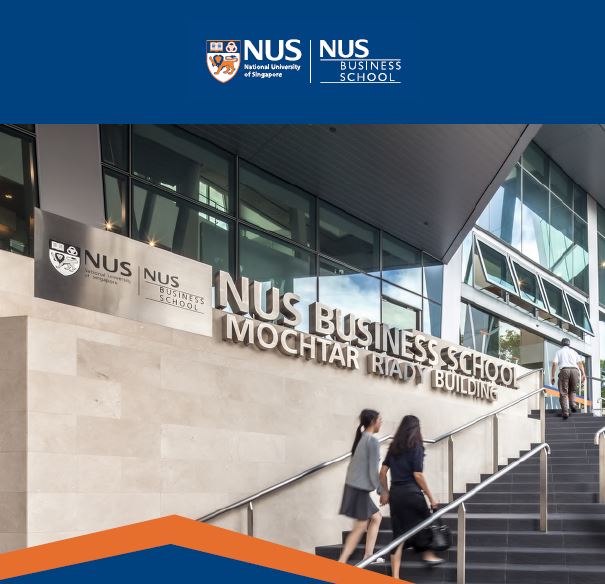NUS AMP – Leadership Processes and Communications

The success of any business relies on an effective leadership which further requires the leaders to excel in communication. We struggle to communicate effectively, particularly with others who are different from us in some way. According to a report from the Economist Intelligence Unit, poor communication can lead to low morale, missed performance goals, and even lost sales. A separate study by SHRM found that inadequate communication can cost large companies an average of $62.4 million per year, while smaller organizations are at risk of losing $420,000 annually. So, how can you position yourself as a leader through effective communication? This course provides an understanding of how the most effective communication is achieved and its importance for the leaders of today. The course builds a foundation for the essential communication skills and styles and the ways to assess leadership communication.
Course Learning Objectives:
- Learn the essentials of leadership communication skills and its importance for leaders.
- Gain an understanding of the ways to achieve powerful leadership communication.
- Acquire an understanding of various communication styles for effective leaders.
- Understand the method of assessing leadership communication in an organization.
Faculty

Prof Michael Jenkins
CEO, Expert Humans Pte Ltd
Michael is facilitator and coach for Human Resources, Human Capital and Leadership programmes, together with sustainability programmes, organisational development programmes and change programmes (Singapore/SE Asia and UK/Europe). Michael is currently working on understanding the impact of technology on people in organisations: where emotional intelligence (EI) meets artificial intelligence (AI). His EI/AI Nine Box Grid has been developed to enable organisations to have good strategic conversations about their progress (or lack of) on both the human and non-human dimensions of organisational life. He was co-author of the Human Capital Leadership Institute’s latest research Human Capital Prisms which looks at ambidexterity, agility, appreciative enquiry and authentic human capital practices. The core thought leadership areas include altruism, compassion and empathy together with Purpose- and Values-driven organisations and sustainability. The UK’s HR Magazine named Michael as one of the UK’s Most Influential Thinkers in Human Resources in 2014 and again in 2016.
Michael is facilitator and designer of Humanising the Workplace (supported by SHRI, 2020); Programme Director (design/delivery) of the NUS EMBA Managing Human Capital module (2020); co-facilitator on a leadership programme for SMU Libraries (with the Entheo Network, 2020); facilitator for Organisation Design Essentials for CIPD Asia; customised programmes for NUS Business School (NTUC Enterprises, Bank Indonesia). Also, Michael is facilitator on the Singapore Business Leaders Programme (Doing Well and Doing Good in Asia: Human Capital Practices and Sustainability) and co-theme-weaver for the programme; facilitator on Human Resources Leadership Programme (Making Human Capital Human); facilitator on the Global Leadership Programme (Doing Well and Doing Good in Asia); facilitator on the Asian Financial Leaders Programme (The Intersection of Emotional Intelligence and Artificial Intelligence).
Syllabus
Learning Objectives:
- Learn the essentials of leadership communication skills, styles, assessment and their importance.
Module Components:
Video Lectures:
- Why is Effective Communication Important for Leaders
- Key to Powerful Leadership Communication
Readings:
- Essential Leadership Communication Skills
- Communication Styles For Effective Leaders
- Communication Assessment Sample
- Impact of Technology on Human Resource Jobs & Skills
Quiz:
- Leadership Communications
